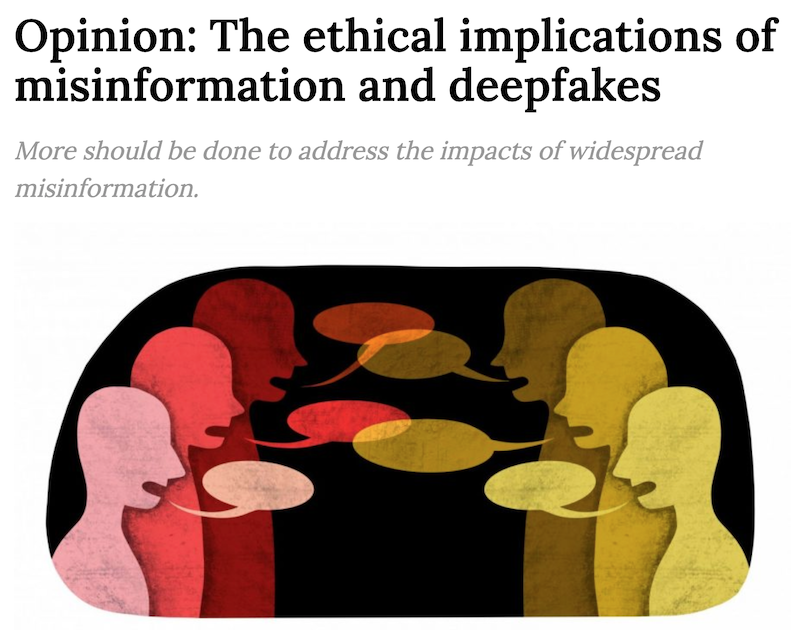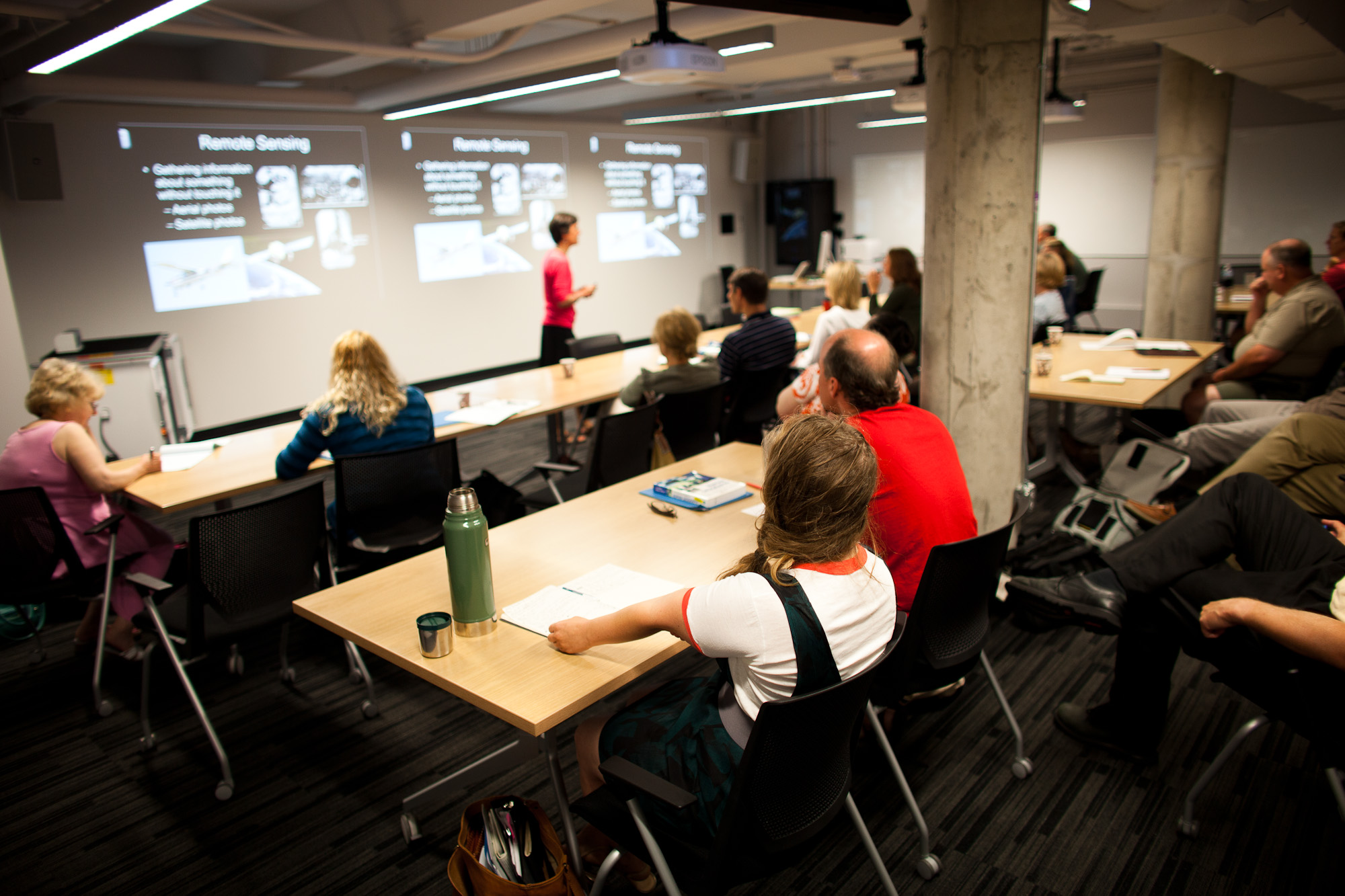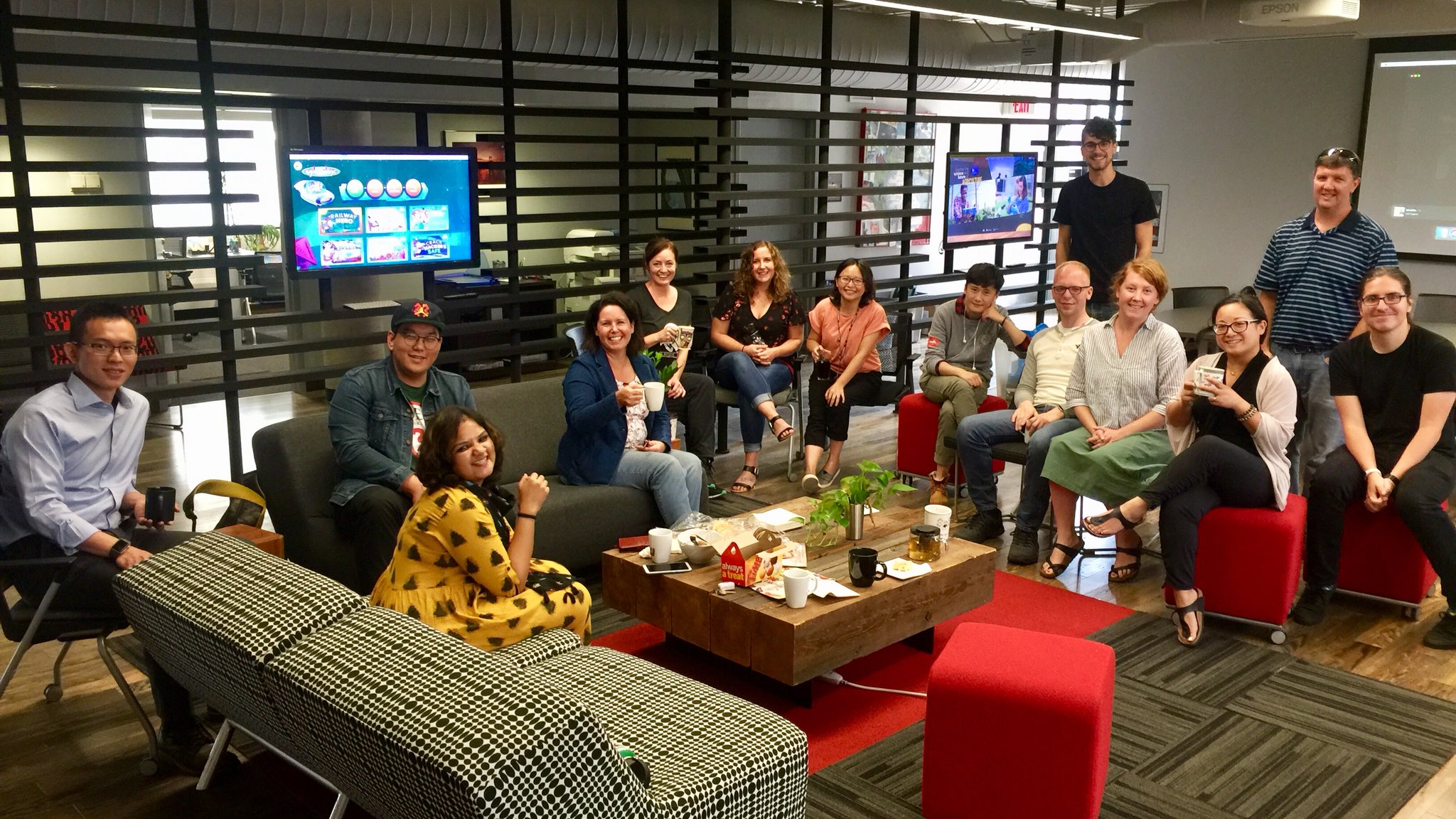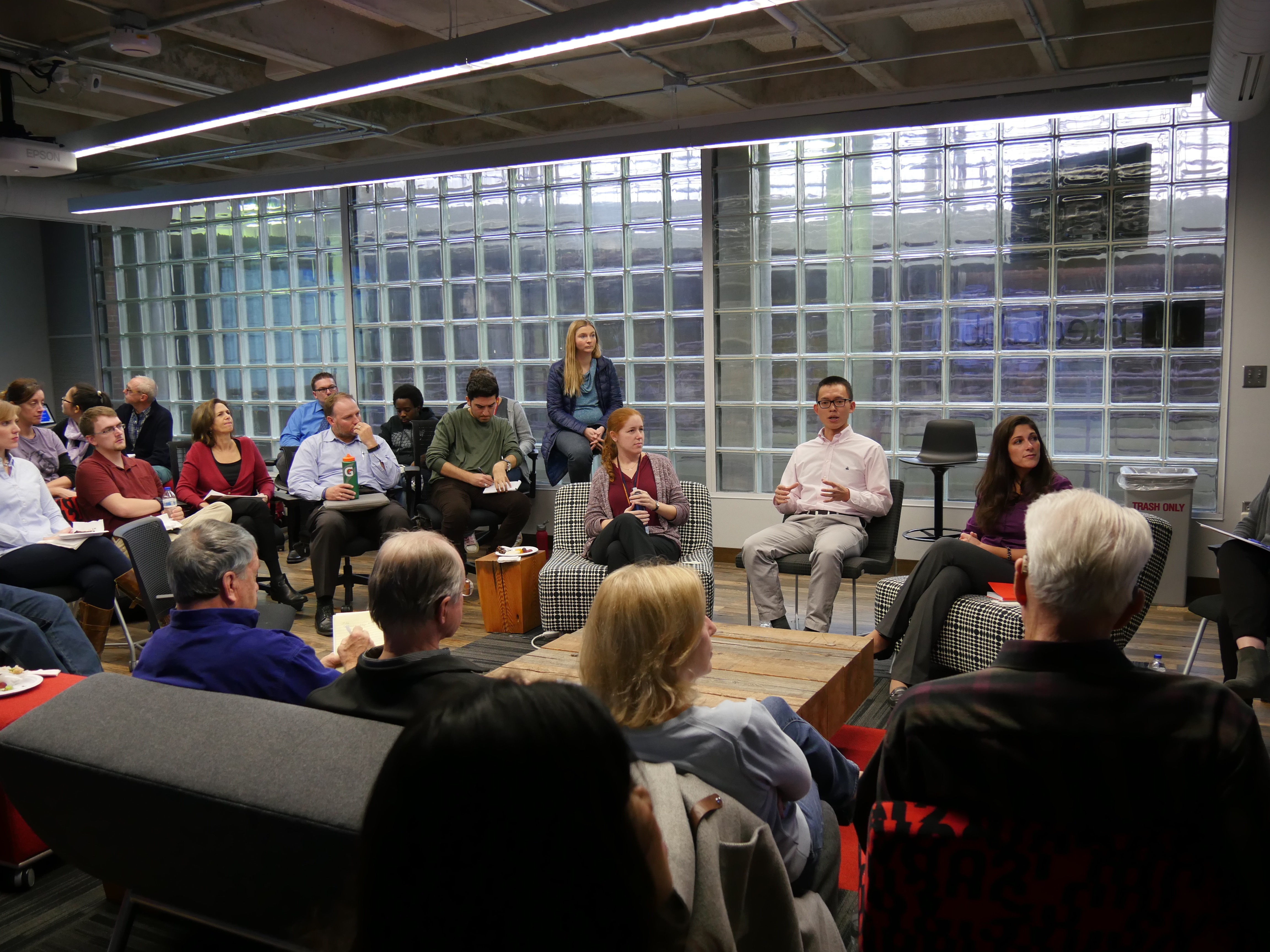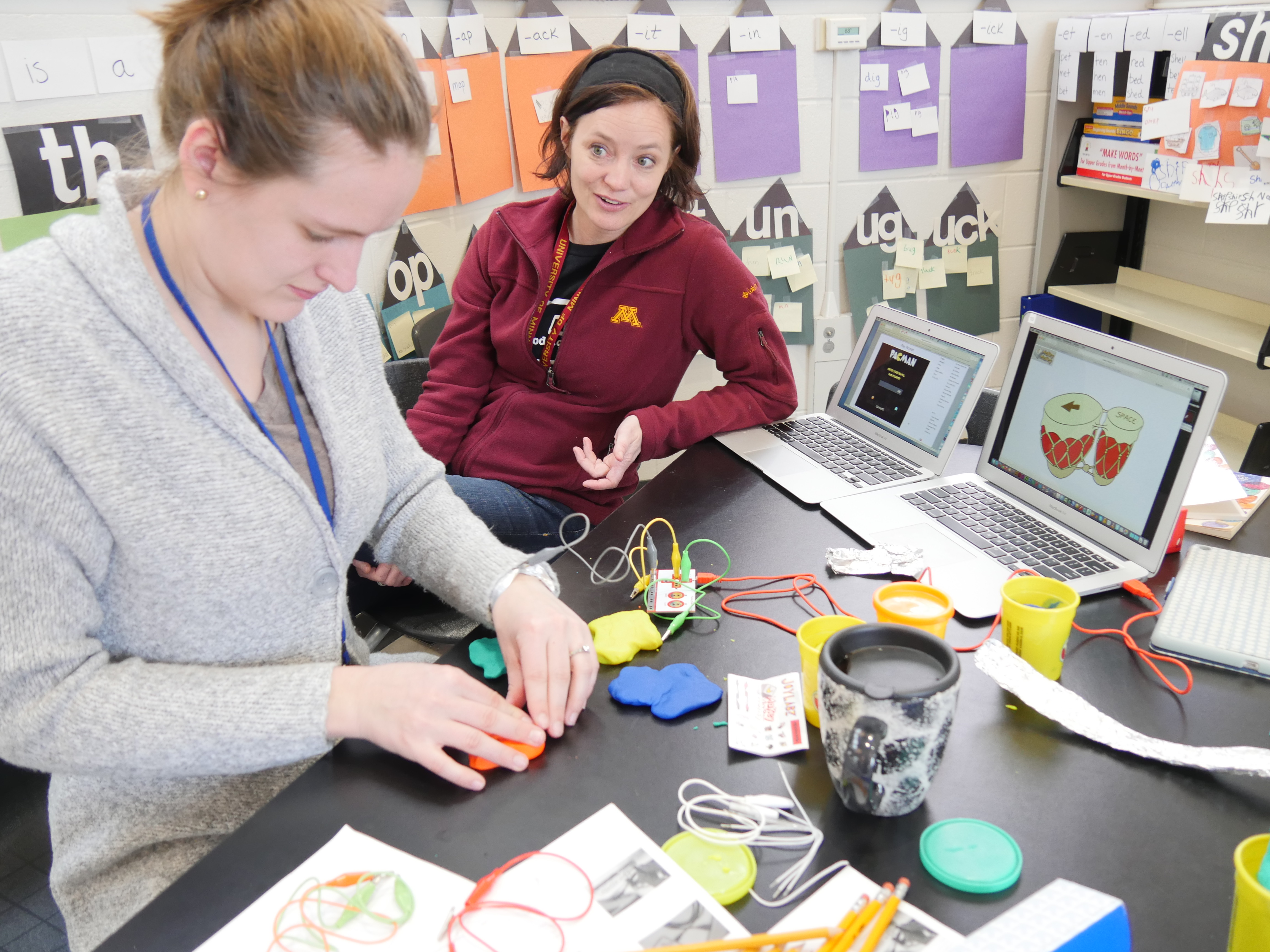
Chase Fingerson, a senior enrolled in LT’s undergraduate course CI4311W Technology and Ethics in Society with Dr. Jolie Kennedy, recently had an opinion piece published in The Minnesota Daily, the University of Minnesota’s campus newspaper. The title of the article is The Ethical Implications of Misinformation and Deepfakes. Chase wrote this article as part of an authentic digital writing exercise in the highly popular Tech & Ethics class that explores issues like the ethical implications of the ways digital media and online technologies can be used and designed with both positive and negative outcomes. As Chase’s article explains, tech can be used to spread misinformation and disseminate deceptive or misleading content. But online spaces and networks can also be places to connect, inform, unite, and move people to action. Sometimes this means productive action affecting social change or advocating for a cause by sharing accurate information and raising awareness about the implications of modern technologies. The Tech and Ethics course explores all of these issues, including misinformation as well as digital activism, or using technology in society to educate, advocate, and affect social change.

CI 4311W Tech & Ethics is also approved to meet the writing-intensive course requirements that undergraduate students must meet, as noted by the “W” added to the course number. Notably, digital writing is also a hallmark of the course, as conceptions and practices of “writing” expand to include the use of digital media to produce, publish, access, and read online. Fingerson’s article published on The Minnesota Daily is an exemplary model of the digital writing that is exercised and encouraged in CI 4311W, as well as all other LT undergraduate and graduate-level courses. LT undergrad courses can be applied to meet the requirements for the undergraduate minor program in Learning Technologies. And interested students can even major in Learning Technologies through a new and unique, individualized B.A. or B.S. program in the College of Continuing and Professional Studies. A degree or specialization (minor) in LT develops students’ knowledge and skills in digital literacy, digital citizenship and activism, and digital leadership. Graduates with such advanced digital knowledge and skills are in high demand. To learn more about LT’s undergraduate course offerings or how to begin a minor or major in Learning Technologies, contact Dr. Angel Pazurek who designed these programs to meet real world needs with authentic, practical applications and now serves as the faculty advisor for LT’s undergraduate programming.
